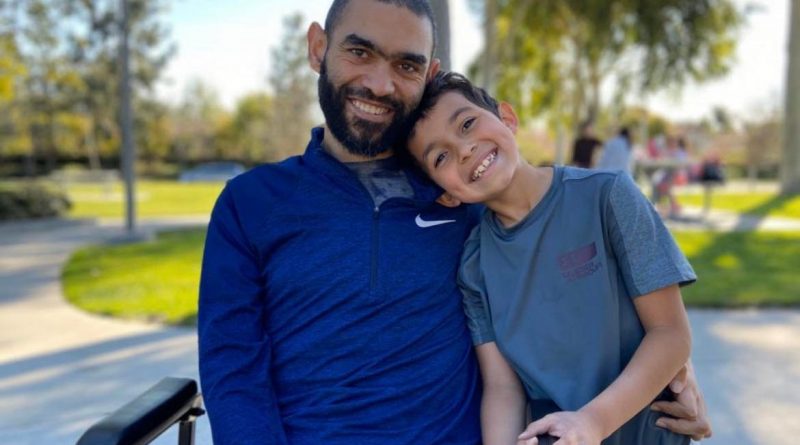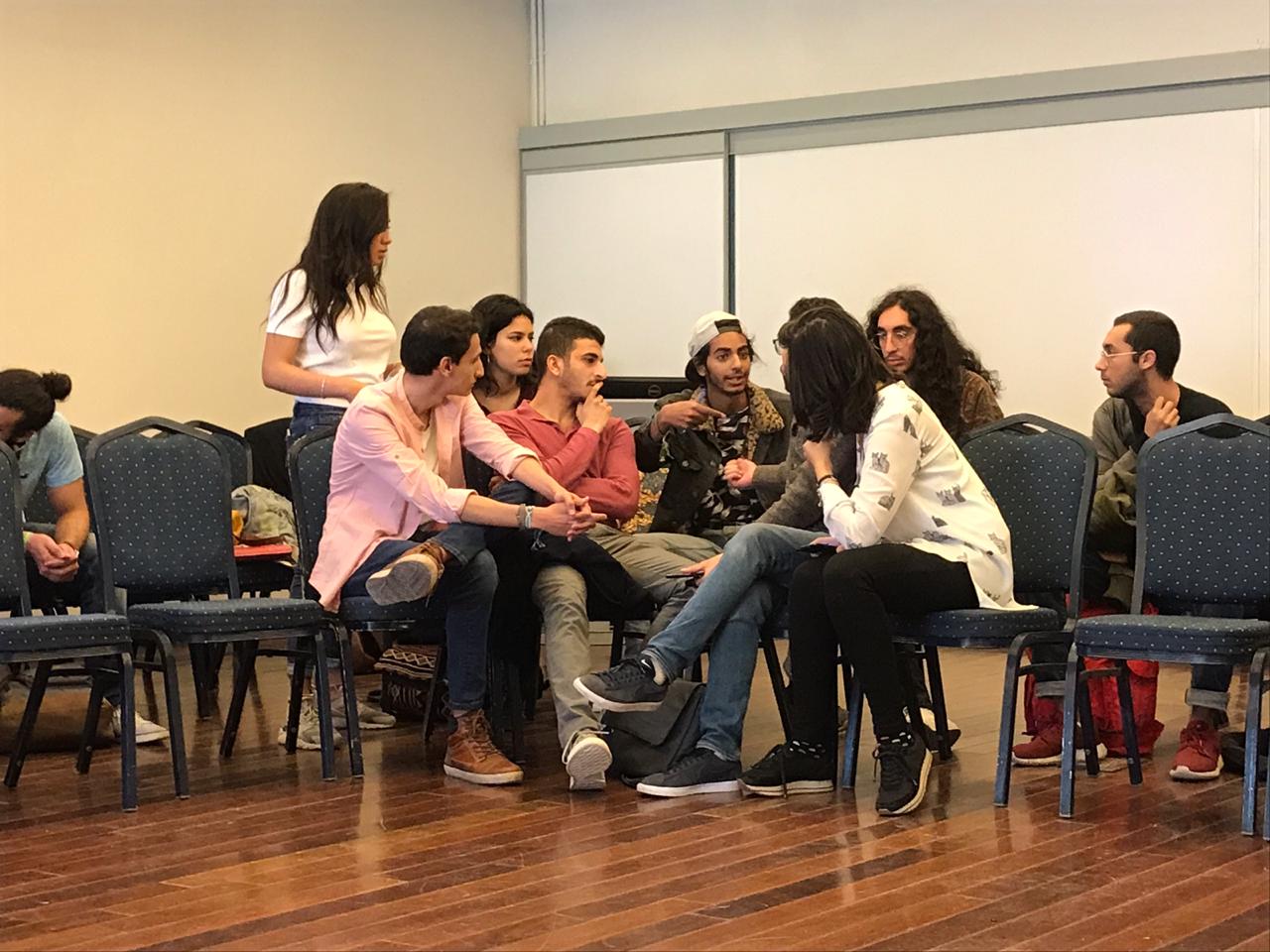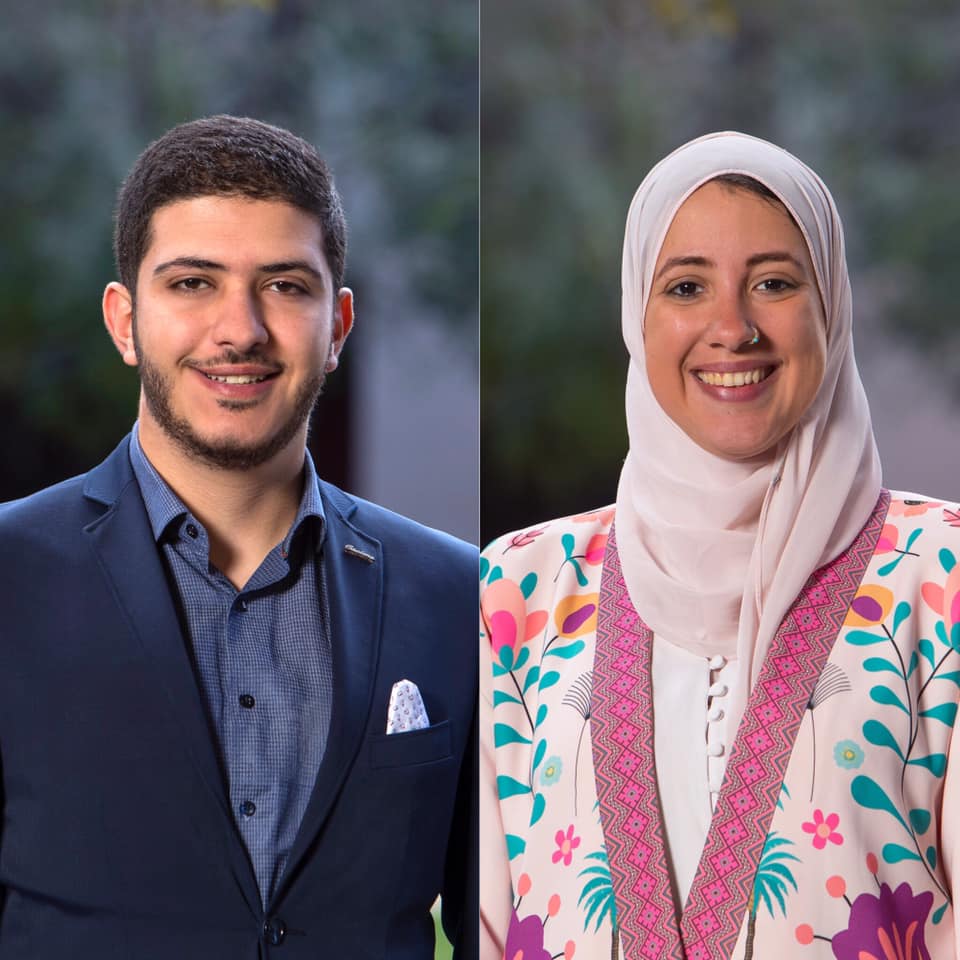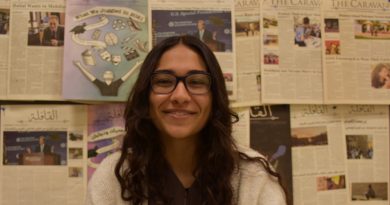Tamer ElGindi: Stop, Reflect, and Appreciate
By: Darin Hany
Edited by: Rasha Saib
Tamer ElGindi’s long journey of educating and inspiring young minds was suddenly put to the test when he was diagnosed with Amyotrophic Lateral Sclerosis (ALS) disease in 2017, at the age of 36.
But rather than lament his predicament, ElGindi, a former Assistant Professor of Political Science at AUC, chose to look at the bright side and began sharing reflections on his journey with the disease on Facebook through his page “My ALS Random Reflections”.
ALS, also known as classical motor neuron disease, is a rare neurological disease that affects the nerve cells responsible for controlling voluntary muscle movements like chewing, walking, and talking.
ElGindi was in Egypt, teaching at AUC, when he first found out about his diagnosis.
“It was really shocking and terrifying at the beginning, two out of three neurologists I saw in Egypt hinted [at] ALS, but I’m assuming they didn’t want to be the bearers of bad news,” he said.
ElGindi travelled to the US for a final confirmation of his disease at the ALS and Neuromuscular Center at the University of California, Irvine (UCI).
“The third neurologist said it to me bluntly, which really left me in a devastating state,” ElGindi said.
As time passed, his mobility started to deteriorate and he became more dependent on assistance like walkers or an electric scooter to facilitate his daily activities.
After completely losing his ability to move, ElGindi started to use an eye-tracking device which follows the movement of the eyes to allow the person to navigate the web or to be able to type on a custom screen.
However, he remained determined to make the most out of this situation; he viewed it as an opportunity to maximize skills gained from years of expertise in academia and discovered his natural talent for storytelling.
“Well, the story [of] how this [Facebook] reflection page began is a bit strange. Initially, one of my best friends, when he saw me using the eye-tracking device, told me that I [needed] to put it [to] use by writing something that could be [of] benefit to others, but the ideas [weren’t] fully formulated yet,” he explained.
ElGindi was later encouraged by his friends to start documenting his story in the form of reflections; the idea expanded in the hopes of it touching a wider audience.
“I believe my ALS journey has matured me significantly and [given] me a rare perspective not available [to] most people. The last five years have been full [of] huge events for me and all those around me, and I believe that people can benefit from my experience in [one] way or another,” ElGindi explained.
Political Science alumna Farah Otozbeer was inspired by the reflections and became the first person who shared his page with the AUC community via social media.
“Through his reflections I’m getting to know a side that I never really saw from him, a very reflective and appreciative side, and a connection with God and nature that is very special,” she said.
ElGindi continues to have an effect on his students to this day.
“My first impression of him was that he was a very dedicated person, eager to pass forward his knowledge. From the first moment it was apparent that his style was different from others. A very interactive and leveled conversation,” said Eyad Hegazy, Political Science Senior.
ElGindi says he tries to stay grateful that he is surrounded with a great support system that helps him keep going.
“I am very grateful for [the amazing social support that I received], beginning with a supportive wife and kids, an ever-giving parents and family, and an amazing set of friends who stood beside me in every possible way,” he said.
ElGindi aims to remind people of the daily blessings we often take for granted through his Facebook page.
“I believe my main message is the one I documented in my first reflection: Stop, Reflect, & Appreciate . We live [with] an infinite number of blessings that we fail to recognize,” he said.
His family has been just as deeply affected by his disease. His wife Siddika Omar has been taking care of him and helping him out in all of his daily activities alongside his family and friends.
“We got married in 2006, 16 years of marriage and what I loved most about him when I first met him was that he was real, he was honest, not trying to draw an image of himself that he is not; he was very humble, kind, and down to earth,” Omar explained.
Omar found herself in a position where she felt helpless and in shock as soon as they found out about ElGindi’s diagnosis because it brought back bleak memories, as her uncle also suffered from a motor neuron disease called Bulbar Palsy.
“When I found out, I broke down, it was as if I was isolated from the rest of the world. I was fully dependent on Tamer, didn’t have much thought about pursuing a career as I was happy being a mother and a fulltime housewife,” Omar explained.
With the changes that ElGindi’s family experienced, his wife felt the need to start acting upon this sudden shift and she was very encouraged by her father.
“My dad told me to do a Master’s, so I did in International Comparative Education, I started working at Hayah International Academy, and I gave myself the opportunity to work on myself and occupy my brain as my father advised,” Omar said.
Omar has been very patient and resilient as a mother and a wife. She believes that one of the main reasons she has been able to deal with this is because of her upbringing.
“My mom was a very strong person, she was calm and very accepting of fate. I was very astonished by how she takes all of the challenges that she encounters and still keeps going, she was very devoted to helping people, I didn’t realise how much I was affected by her until she died,” Omar added.
ElGindi and Omar have learned to count their blessings as life goes on, because often people take so many things for granted, in the fast paced world we live in; It is easier to get distracted.
“Unfortunately, we don’t appreciate these blessings unless they are taken away. We need to humble ourselves in front of our Creator and understand that no meaningful gratitude can be practiced until we properly reflect on and appreciate the blessings we are being showered with,” ElGindi said.




